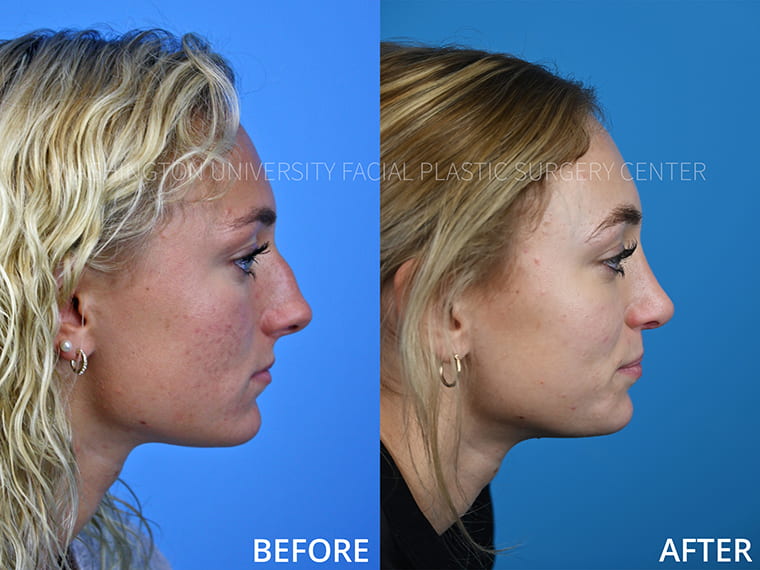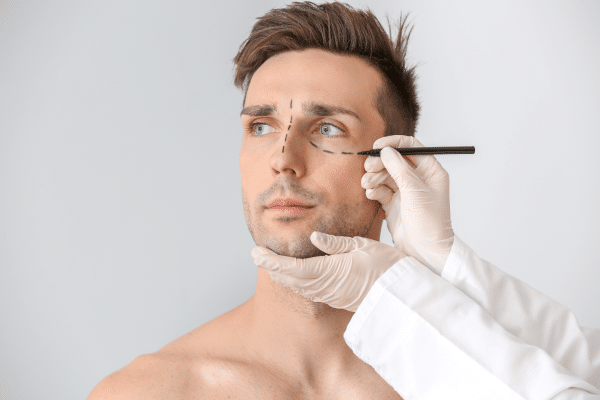Facelift Rancho Cucamonga: Reverse the Clock with Advanced Anti-Aging Solutions
Facelift Rancho Cucamonga: Reverse the Clock with Advanced Anti-Aging Solutions
Blog Article
Examining the Emotional and Social Factors That Drive Individuals to Take Into Consideration Cosmetic Surgical Procedure as a way of Improvement
The decision to go after cosmetic surgical treatment commonly extends past plain appearances, linking with psychological and social characteristics that merit thorough assessment. Factors such as self-esteem, prevalent social elegance standards, and the pervasive influence of social media converge to shape individual inspirations for medical enhancement.
The Duty of Self-worth
Self-worth significantly influences a person's decision to go after cosmetic surgical procedure. People with reduced self-confidence usually perceive themselves in an adverse light, leading to sensations of insufficiency regarding their physical appearance.

Inevitably, the role of self-esteem in the decision-making process regarding plastic surgery highlights the intricate interaction between body picture, personal contentment, and mental wellness. Understanding this partnership is vital for health care specialists to ensure that people are making notified choices rooted in reasonable assumptions and psychological wellness.
Social Appeal Requirements
Influenced by prevalent media portrayals and cultural narratives, social appeal requirements play a crucial duty in shaping individuals' understandings of their very own bodies. These requirements are commonly identified by an idealized form of elegance that stresses attributes such as slimness, youthfulness, and balance. As these suitables are perpetuated via numerous channels, including television, movie, and marketing, people frequently internalize these messages, resulting in discontentment with their all-natural look.
The implications of these social standards prolong past aesthetic preferences; they can impact self-worth, psychological health, and social connections. Individuals who perceive themselves as disappointing these criteria may experience sensations of insufficiency, motivating a desire for cosmetic surgical treatment as a way of attaining societal approval. This search is typically fueled by the idea that satisfying these suitables will boost not only physical appearance yet also social standing and personal fulfillment.

Impact of Social Media
The effect of societal elegance criteria is further magnified by the surge of social media sites platforms, where curated photos and idealized representations of beauty are ubiquitous. Individuals are constantly subjected to filteringed system and edited photos, which typically depict unattainable physical characteristics. This direct exposure grows a society of comparison, leading individuals to analyze their very own look versus these often unrealistic criteria.
Social media influencers and celebs frequently promote aesthetic treatments, normalizing the notion that medical improvements are a practical ways for achieving societal ideals (plastic surgery rancho cucamonga). The exposure of these enhancements can develop an assumption that undergoing cosmetic surgical procedure is a basic practice, thereby influencing people to take into consideration similar treatments as a path to enhanced self-worth and social acceptance
Additionally, the navigate here interactive nature of social networks permits for prompt comments through likes and remarks, additionally strengthening the desire to satisfy popular elegance requirements. Such interactions can aggravate feelings of inadequacy and drive people towards plastic surgery as a way of gaining validation. Inevitably, social networks plays a pivotal duty fit understandings of beauty, which significantly influences the decision-making processes surrounding plastic surgery.

Cultural Perspectives on Look
Throughout different cultures, understandings of appearance are deeply rooted in historical, social, and financial contexts, shaping individuals' views on elegance and desirability. In many societies, look acts as a significant marker of identity, affecting social standing, expert opportunities, and individual relationships. For example, in some societies, light skin is commonly related to wealth and benefit, while others may glorify darker skin tones as symbols of stamina and credibility.
Additionally, conventional elegance requirements are typically bolstered with cultural narratives, media depictions, and household affects, resulting in differing suitables throughout various regions (plastic surgery rancho cucamonga). In Western societies, the emphasis on young people and physical health and fitness commonly drives individuals toward aesthetic enhancement, while in specific Eastern cultures, more subtle adjustments lined up with traditional aesthetic appeals may be liked
Globalization and the spreading of digital media have actually even more made complex these dynamics, developing a hybridization of charm ideals that transcends geographical borders. As people progressively browse these cultural stories, the stress to comply with specific appearance criteria can cause the need for plastic surgery, mirroring a complicated interaction of individual aspirations and social values. Comprehending these social viewpoints is important in attending to the inspirations behind plastic surgery considerations.
Mental Influences of Aesthetic Surgical Treatment
Lots of people seeking cosmetic surgical procedure navigate to this website report experiencing profound psychological effects that can considerably alter their self-perception and psychological health - plastic surgery rancho cucamonga. The wish for physical improvement usually originates from underlying issues such as reduced self-confidence, body dysmorphic disorder, or societal stress relating to charm standards. For some, the prompt post-operative stage can bring about a momentary boost in confidence and complete satisfaction with their look, fostering a feeling of empowerment
However, these favorable feelings might not be enduring. Research shows that while some clients experience boosted self-confidence, others may encounter intense stress and anxiety or clinical depression if their expectations are not fulfilled. This inconsistency can occur from unrealistic suitables perpetuated by media depiction and social narratives bordering charm.
Additionally, the emotional ramifications of plastic surgery extend past the individual. Relationships with friends and family may be stressed as social dynamics shift, causing feelings of isolation or alienation. Inevitably, the psychological impacts of plastic surgery are complicated and multifaceted, calling for mindful factor to consider by both prospective clients and medical care suppliers to ensure educated decision-making and reasonable assumptions.
Final Thought
In verdict, the choice to pursue plastic surgery is substantially affected by a mix of self-worth problems, societal beauty requirements, and cultural viewpoints on look. The pervasive reach of social networks further worsens these stress, advertising impractical perfects that individuals typically make every effort to acquire. Understanding these psychological and social factors is important for attending to the motivations behind plastic surgery, highlighting the demand for a much more nuanced discussion bordering appeal and self-acceptance in contemporary society.
The decision to pursue cosmetic surgery typically prolongs beyond simple appearances, intertwining with social and psychological dynamics that warrant thorough examination. Ultimately, social media plays a critical role in forming assumptions of elegance, which significantly impacts the decision-making processes bordering cosmetic surgical procedure.
As people progressively navigate these cultural narratives, the stress to adapt to particular appearance criteria can lead to the need for cosmetic surgical procedure, showing a complicated interplay of individual goals and social values.In conclusion, the decision to seek cosmetic surgery is significantly affected by a mix of self-worth issues, societal elegance requirements, and social viewpoints on look. Comprehending these psychological and social elements is essential for resolving the motivations behind cosmetic surgical treatment, highlighting the requirement for click resources a more nuanced discussion bordering appeal and self-acceptance in contemporary culture.
Report this page